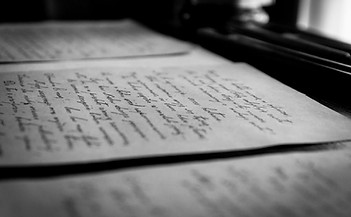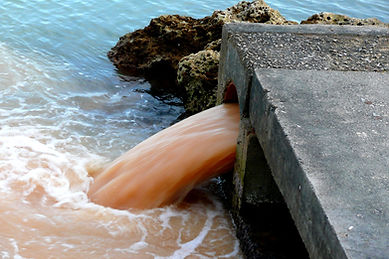


Chicago Tween/Teen Homeschool Co-operative
This session Chicago Tween Teen Homeschool Co-op will be a 12 week session.
Fall/Winter term: Jefferson Park 4822 N Long Ave, Chicago, IL 60630
Mondays:
September 17, 24
October 1, 8, 15, 22, 29
November 5, 12, 19, 26
December 3
Block 1 9:30-10:45 World History
10:30-11:45 (Littles Science)
Block 2 10:55-12:10 Creative Writing II
Lunch 12:15-12:45
Block 3 12:50-2:05 Anatomy/Physiology
Block 4 2:15-4:15 Aquatic ROV Robotic Project
Membership is based on how many families join. It is for one day or both days of co-op....you are NOT charged for each day. It includes Insurance (which is required by most spaces) . school supplies, snacks and coffee/cocoa bar this term. Estimate will be $30-50
Membership can be paid by cash, check or PayPal (using FRIENDS and FAMILY option) to ctthcoop@hotmail.com
Pay teachers in person by cash or check first day of class or on PayPal (using FRIENDS and FAMILY option)
To Register:
Email angelicreatures@hotmail.com with students name and classes they wish to sign up for. Parent and students contact phone numbers along with their emails.
** Aquatic ROV Project Class and Anatomy class have summer reading (highlighted in red under class description) and it would be beneficial for students to join and attend Shedd Teen Learning Lab https://www.sheddaquarium.org/Learning-Experiences/Teen-Programs/ . There is also an orientation for new teens at the Shedd.......next orientation is September 20. https://www.sheddaquarium.org/Learning-Experiences/Teen-Programs/teen-orientations/
**We have tried to find a Python Computer Program instructor all summer and our 3 programmers fell through (schedules) SO......there are Free Python (self-paced) classes to sign up for. EDX.org has Microsoft Absolute Beginner, Fundamental, and Creating Scalable Robust Interactive Code .....depending on your child's level of programming knowledge. https://www.edx.org/course?search_query=python Sign up at www.EDX.org ***
IT IS NOT REQUIRED TO KNOW PYTHON.
Monday Schedule
Block 1 9:30-10:45am


World History
This class will cover a rough timeline of World History from the development of agriculture to the 20th century. A.P. History test question topics will be covered, along with an emphasis on Social History. We will also focus on the process of writing a research paper.
Fee: $60.00 for 12 weeks
Minimum 5 students.
*Class Materials: Any Atlas of World History, The People's History of the United States by Howard Zinn, (and, or The Young People's History, which is a simplified version)
Instructor Erin Drennan
I earned a B.A. in History from UIC where I focused on 20th century U.S. Economic , Latin American, Russian, African and Chinese studies. Studying History in college has made me achieve better understanding about world situations and events. It also helped me to refine my research and writing skills.
Break 10:45-10:55am
Block 2 10:55-12:10pm


Creative Writing II
Creative Writing: Creating the Future DESCRIPTION: What do you think of the world today? What works and what doesn’t? How would you change things if you had complete control? In this class students will be introduced to short stories and poems from genres like science fiction, afro- futurism, and magic realism, which envision a world beyond what we see around us. We will pursue discussion of personal and global values, forms of government/non-government, relationship with the planet, and any topics deemed important by the group. Students will be responsible for mapping out their own worlds, which will culminate in drafting individual stories. MAX: 15 students
COST: $120 (includes
story and poem print outs)
BIO: Walker received his BA in English with a minor in French from DePaul University. He has also studied at University Catholique de Toulouse at the C1 level. He holds a JLPT certificate at the N2 level and is the lead translator/interpreter for Art Battle© Tokyo. In 2017 he was awarded a teaching certificate from International TEFL Academy in Chicago, IL. Tutoring through DePaul University and in private classes since 2012, his class list spans fundamental reading and writing, high school composition, college application essays, and formal research papers
Lunch 12:15-12:45pm
Block 3 12:50-2:05pm
Anatomy/Physiology
**Summer reading for class**
Gulp, Stiff, Mary Roache
The Immortal Life of Henrietta Lacks, Rebacca Skloot
Adventures of a Female Medical Detective, Mary Guinan
Anatomy Coloring Book and textbook
This year we will do NEW labs with organs and organ systems in more detail, including normal function vs. disease/disorder processes. The systems include skin and homeostasis mechanisms, endocrine system, adaptive immune system (lymphatic, etc.), circulatory including doing/reading our own EKGs and mammalian reflex labs, bone/joint/ligament/tendon/muscle and arthritic processes, kidney and liver - their roles in pharmacokinetics and pharmacodynamics, reproductive development, brain/brain stem/spine functions and tests, sensory systems, and common blood/urine tests performed at a doctor’s office. Labs will include some work in learning some first aid and medical interventions like stitches/staples/glue and when they are used. We’ll also attempt to develop new ideas for current interventions/devices for treatment.
Students will be assigned weekly reading sections in: https://openstax.org/details/books/anatomy-and-physiology a free, peer-reviews textbook. I do also recommend that students get the Anatomy and Physiology Coloring Book, especially if they are planning any career in the health sciences. Health science students should keep a portfolio of their labs and assignments.
All students will be asked to produce two presentations (any format they feel comfortable with), one per semester. Students who wish for grades should let the instructor know, there will be a couple more homework assignments and tests to adequately gauge their abilities.
Class minimum of 2, maximum of 15 students. Cost $100 for 12 weeks
Ruth Kulmala, PhD, MPH
ruth@rekulmala.com
847-902-1656
Textbook: Free online materials at https://openstax.org/
For both of the science courses, students keeping a lab notebook and portfolio of their work (with the addition of any AP/SAT subject matter tests scores) can qualify a student for college credit (each college applies this credit a little differently). Also dress code for these science courses involve closed-toe shoes and clothing you don't mind getting dirty or working on the floor in. All other safety gear is provided as needed.
Dr. Ruth Kulmala-Repp is a working researcher/biomedical engineer, focusing primarily on the development and regulatory affairs of compounds/devices for pediatric respiratory, renal, and dermatological patients. She is also a studying epidemiologist/bio statistician, working on a second doctorate. Ruth has been teaching science for too many years to count, but not so many that she's lost her contagious interest in it! Each week her family patiently lives with boxes of science everywhere and graciously loads and unloads the minivan with a "mobile laboratory" of materials for each the classes. She lives in Lake Bluff with her husband Rob, teen offspring Fiona (a.k.a., Sky), elderly parents, 2 cats, 9 laying chickens, and a Pyrenees herding dog. She also has an adult, married son, Andrew, living nearby who is also a bio statistician (and his wife, Lisa, teaches elementary science).



Block 4 2:15-4:15pm
Aquatic ROV underwater Robotics
Dr Ruth Kulmala. PhD, MPH
Class Fee: $125 for 12 weeks
Optional travel.
This is full credit, multidisciplinary science class with optional AP study. Dr. Kulmala is a college board-audited instructor.
This will be a 2 semester class in full. Including:
Biology
Biochemistry/Molecular biology
Marine/Aquatic biology
Limnology
Environmental biology
Ecology, Restoration biology
Physics (waterproof circuits, soldering, buoyancy, propulsion, underwater optics, underwater mapping)
Robotics (including programming python)
This will occur through labs and lectures. This course will have homework. Estimated 3 hours a week plus more for those who want AP.
Students will have extensive hands-on experience working on several projects first as individual laboratory explorations and then as large groups to design, create, and test remotely operated underwater vehicles with the goal of first participating in a MATE (Marine Advanced Technology Education) competition in April 2019 and second: to design and meet some goals of monitoring, data collection and documentation of several freshwater aquatic environments,
All students will rotate through different elements of the ROV construction process to learn all aspects of the program. By the second semester, students are likely to settle on their interest category in the ROV team and develop their individual skill towards that topic, to complement the overall team.
We will work with Shedd aquarium and try to get a sponsorship. A Shedd aquarium sponsorship will allow for additional materials, training, engineer assistance, and extra tools.
We encourage teens to attend the after school Shedd Learning Lab (please register to attend the Shedd orientation here:https://www.sheddaquarium.org/Learning-Experiences/Teen-Programs/teen-orientations/) Learning lab meets Weds. & Thurs. 4 to 8 p.m. https://www.sheddaquarium.org/Learning-Experiences/Teen-Programs/Teen-Learning-Lab/
Students will use an indoor pool to test run the ROV in the winter. Team members will meet at different times to run tests. We may decide as a group, to travel to other environments (monitoring invasive species, water quality, etc) Students can decide if they want to present research to the ISU CeMAST )Center for Mathematics, Science, and Technology) High School research Symposium.
*Students will come away with a better understanding of local and other watersheds, aquatic systems, native fish and wildlife in North America, as well as the process of successfully designing and operating an ROV for competition and as a tool for practical aquatic applications.
Field trips are being arranged currently and will be on another day besides class day.
Reading Material:
Water and Ethics, UNESCO (summer reading)
The Living Great Lakes:Searching for the Heart of the Island Seas, Jerry Dennis (summer reading)
Openstax, Common Freshwater Fish of Illinois
Peterson Guide to Freshwater Fishes
Illinois Department of Natural Resources, Exotic species in Illinois (invasive)
Agricultural library, United States Department of Agriculture
USGS, Great Lakes Science Center articles
American Fisheries Society articles
NOAA and Woods Hole Oceanographic Institution articles
The Biology of the Lakes and Ponds, Christer Bronmark, Lars-Anders Hansson
Students may want to have large rubber boots or waders, swimming and snorkeling gear (no full face masks, please) Waterproof ditty bags to protect cellphones and tablets.
Dr Kulmala :Dr. Ruth Kulmala-Repp is a working researcher/biomedical engineer, focusing primarily on the development and regulatory affairs of compounds/devices for pediatric respiratory, renal, and dermatological patients. She is also a studying epidemiologist/bio statistician, working on a second doctorate. Ruth has been teaching science for too many years to count, but not so many that she's lost her contagious interest in it! Each week her family patiently lives with boxes of science everywhere and graciously loads and unloads the minivan with a "mobile laboratory" of materials for each the classes. She lives in Lake Bluff with her husband Rob, teen offspring Fiona (a.k.a., Sky), elderly parents, 2 cats, 9 laying chickens, and a Pyrenees herding dog. She also has an adult, married son, Andrew, living nearby who is also a bio statistician (and his wife, Lisa, teaches elementary science).
Questions: Email Ruth@rekulmala.com



